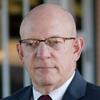Medical Evidence Issues in Personal Injury Trials: Medical Records, Expert Testimony, Out of Court Materials
Admitting Evidence in Medical Records to Prove or Challenge Causation and Damages
Recording of a 90-minute CLE video webinar with Q&A
This CLE webinar will discuss the range of evidentiary issues that must be surmounted to admit in a personal injury trial medical records and the evidence in medical records to prove or challenge causation and damages. The panelist will cover admissibility of medical documents and data, acceptable bases of medical expert testimony, and hearsay issues related to materials relied on by experts.
Outline
- Applying the business records exception under FRE 803(6)
- Hospital records
- Billing
- Treating physician records
- Consultations
- Medical tests, test results, imaging, etc.
- Exams and reports prepared for litigation
- Statements from companions
- Admitting or challenging hearsay within admissible records
- How accidents occurred
- Causation and preexisting conditions
- Proper application of FRE 803(4)
- Expert testimony as a channel for hearsay
- Expert testimony and the problem of out of court materials
- Practice guidelines
- Authoritative texts, journals, books, studies
Benefits
The panelist will discuss these and other key issues:
- What kind of foundation is required for medical records under FRE 803(6)?
- What is the difference between authentication and admissibility?
- When can the exception under FRE 803(4) be applicable?
- Are out of court materials relied upon by experts admissible or may they only be referred to?
Faculty

Ben Locklar
Principal
Beasley Allen
Mr. Locklar practices as a member of Beasley Allen Law Firm’s Personal Injury and Products Liability Section.
| Read MoreMr. Locklar practices as a member of Beasley Allen Law Firm’s Personal Injury and Products Liability Section.
Close